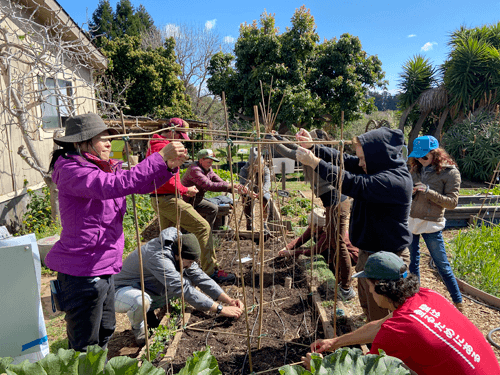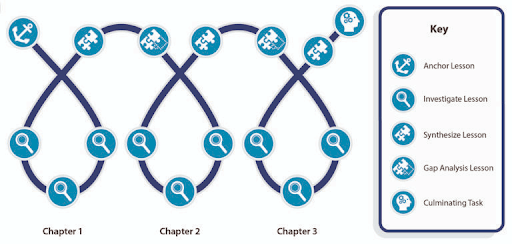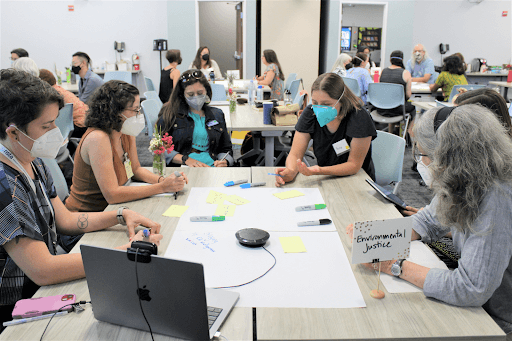Climate change and the climate justice issues that result from it are some of the most pressing societal challenges of any generation. Already, young learners must rely on the knowledge and skills they learn in school to navigate these crises. So how can we ensure all are prepared?
That’s where BSCS Science Learning comes in. BSCS has a long history of translating research into powerful programs for science students, teachers, and leaders across the country. Over the last sixty-five years, we’ve made some bold moves to transform science education. We reintroduced the important topic of evolution into biology classrooms in the 1960s, and now we’re engaging students with science concepts that will help them address climate change, racism, pandemics, and other serious problems.

What drives us? We believe science can be used to improve our world and build a better future for all. In this world, every individual will use science to thrive in their personal life, care for their communities, and contribute to efforts to protect our shared planet. All of our work is grounded in research and produced in highly collaborative, diverse teams. At BSCS, we are lucky enough to partner with a range of organizations, educators, and leaders who share our vision for science education.
Sometimes we’re the lead partner. We recently led the development of OpenSciEd Middle School Science and BSCS Biology: Understanding for Life, two major instructional materials programs designed for the Next Generation Science Standards. Tens of thousands of teachers and students are currently engaging with these materials in middle and high school science classrooms.
Other times we’re a support partner, which gives us the opportunity to reflect and iterate on our usual approaches. As part of the California Climate and Environmental Justice Program (CCEJP), BSCS serves as one of the “anchor” organizations that is providing support for the grade-level writing teams. Beyond our support role, we have had rich opportunities to learn from and with the seven organizations who act as writing teams and bring their own unique youth- and justice-focused pedagogies and relationships to the project.
Building on the successes of our new Anchored Inquiry Learning (AIL) instructional model, which takes a storylines approach to phenomenon- and problem-driven unit design, we worked closely with Ten Strands and the writing teams to develop the CCEJP Storylines model. This instructional model is designed to help all teams meet the design principles for the project, including a student-centered, inquiry-based approach; integration of key standards; and authentic opportunities for students to share their projects, data, analyses, and presentations. Our experience in large-scale, collaborative curriculum development makes us a valuable resource for teams when striking the balance between cross-program consistency and opportunities to foreground the strengths of each of the different writing teams.

Several of the writing teams are closely supported by BSCS staff members to draft and pilot anchor lessons, develop coherent storylines for their units, and engage in the iterative lesson writing process. BSCS staff members provide customized support through a coaching model that ensures each team gets the just-in-time support that they need throughout the unit development process. Coaches meet regularly with the teams to build the relational foundation that is crucial to productive, justice-oriented units and provide asynchronous feedback on drafts. The coaching model also prioritizes each team’s unique assets and expertise while blending with the strong storyline expertise of BSCS staff, so that the units will ultimately center the ideas and narratives from the California-based teams who are steeped in environmental justice work.

A key design principle of the CCEJP project is that students who engage with the units take what they learn about injustice and resilience to address an issue in their own community in ways that foreground and support solutions from impacted populations rather than colonial narratives of “helping others.” BSCS is committed to these types of decolonizing efforts and is excited to identify additional opportunities to support educators and others to design locally relevant, justice-driven storylines materials.


